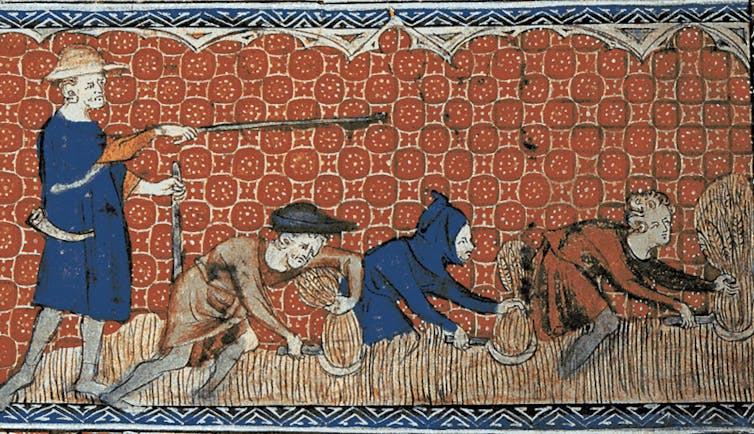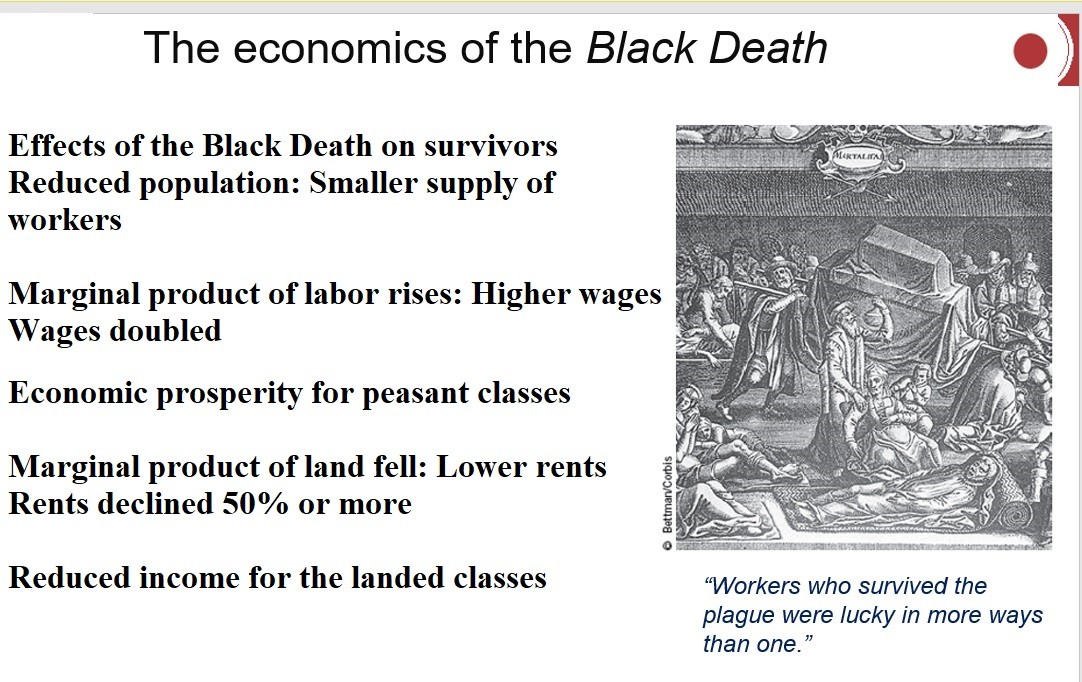When discussing the economic history of Europe, one cannot overlook the profound influence of the Black Death. This devastating plague, also known as the Bubonic Plague, swept across the continent in the 14th century, leaving a wake of social and economic upheaval in its path. Let’s delve into the economic impact of this catastrophic event and its far-reaching implications.

Credit: www.history.ox.ac.uk
The Initial Toll on Agricultural Production
With the Black Death claiming the lives of tens of millions of people, the agricultural sector took a severe blow. A significant portion of the labor force was wiped out, leading to a sharp decline in food production. This shortage of labor caused a spike in wages, but at the same time, land productivity plummeted.
Effect On Trade And Commerce
The decline in population had a ripple effect on trade and commerce. With fewer people to consume goods, demand dropped, impacting the economy. Additionally, the disruption of trade routes due to the fear of spreading the disease further strained the economy. This period saw a shrinking of markets and a slowdown in economic activities.
Transformation of the Feudal System
The Black Death brought about significant changes in the feudal system. The scarcity of labor meant that peasants could demand higher wages and better working conditions. This shift weakened the feudal system, leading to the eventual decline of serfdom. With the existing labor structure in disarray, the old ways of land management and ownership were fundamentally altered.
Rise of Urban Centers
Amidst the devastation, a glimmer of hope emerged in the form of urbanization. The population decline in rural areas led to a migration of people towards cities. Urban centers experienced a surge in population and economic activity. The shift from rural to urban living brought about changes in the social and economic fabric of society.
Impact On Banking And Finance
The Black Death had significant ramifications for banking and finance. The sudden deaths caused by the plague led to a transfer of wealth and property. This reshaped the financial landscape and played a role in the development of banking institutions and the emergence of new financial practices.

Credit: www.historyandpolicy.org
Long-term Resilience and Innovation
Despite the initial devastation, Europe eventually rebounded and displayed remarkable resilience. The scarcity of labor led to the adoption of innovative technologies and practices in agriculture and other industries. This period of adversity ultimately paved the way for advancements in various fields, steering the economy towards a new trajectory.
The Impact On Global Trade
While the Black Death’s immediate impact was felt in Europe, its effects reverberated across the globe. The disruption of trade routes and the decline in economic activities in Europe had implications for global trade. The interconnectedness of economies meant that the reverberations of the Black Death reached distant shores.
Frequently Asked Questions For Economic Impact Of The Black Death
How Did The Black Death Affect The Economy?
The Black Death had a devastating impact on the economy, leading to a significant decline in population, labor shortage, and disrupted trade routes.
What Were The Economic Consequences Of The Black Death?
The economic consequences of the Black Death were widespread, including inflation, reduced agricultural production, collapsing industries, and social upheaval.
Did The Black Death Lead To Social Changes?
Yes, the Black Death led to significant social changes, including the breakdown of feudalism, labor movements, and a shift in power dynamics.
How Did The Black Death Affect Trade?
The Black Death heavily disrupted trade due to lockdowns, restricted movement, and fear of contagion, resulting in a decline in commercial activities.
Conclusion
In conclusion, the Black Death left an indelible mark on the economic landscape of Europe. Its effects rippled through various sectors, shaping the course of history. The transformation of labor dynamics, the rise of urban centers, and the evolution of financial systems are testaments to the enduring impact of this catastrophic event. Understanding the economic repercussions of the Black Death provides valuable insights into the resilience and adaptability of economies in the face of adversity.
Guest Author Sakhawat-Shuvo wrote and edited this Article based on his best knowledge and understanding. These opinions and remarks are not endorsed or guaranteed by epichistoria.com or EpicHistoria. The Epic Historia does not guarantee this article’s content. Readers should verify and use their judgment before trusting the content. Also, the Images used in this Article are the copyright of their Respective Owners. Please use our Comment Box or Contact Us form to report this content. This information is not accountable for losses, injuries, or damages.


